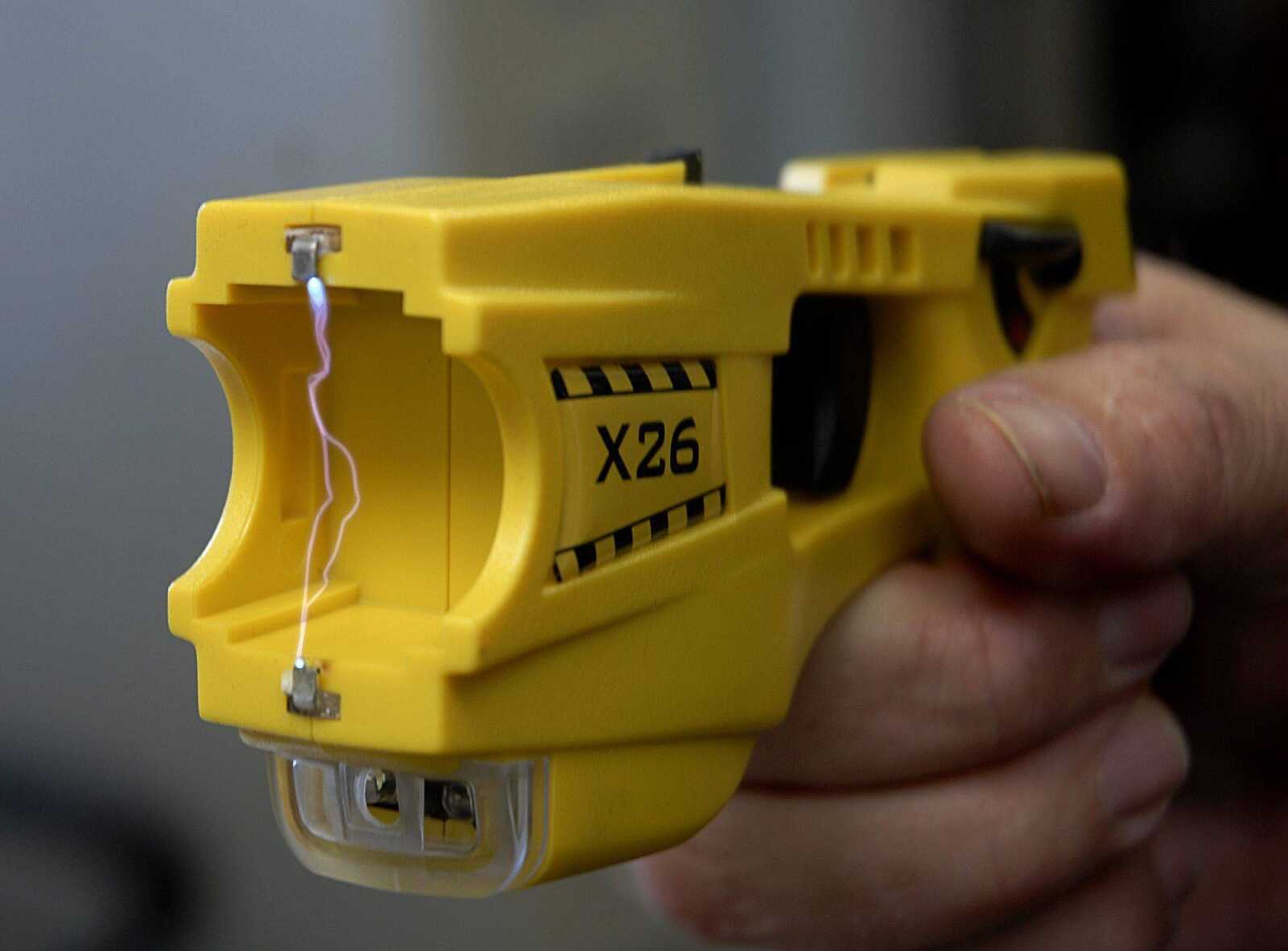2 sides of Tasers
The Taser has become a popular weapon among law enforcement within the last decade. While concerns linger among doctors and civil rights groups about the health risks of the device, law enforcement agencies say Taser weapons have reduced injuries. A Taser shock, if it occurs at the right moment during a heartbeat, could cause cardiac arrhythmia, said cardiologist Dr. Bryan Beck of Cape Girardeau...
The Taser has become a popular weapon among law enforcement within the last decade.
While concerns linger among doctors and civil rights groups about the health risks of the device, law enforcement agencies say Taser weapons have reduced injuries.
A Taser shock, if it occurs at the right moment during a heartbeat, could cause cardiac arrhythmia, said cardiologist Dr. Bryan Beck of Cape Girardeau.
According to Amnesty International, at least three Taser-related deaths in the U.S. have been due to cardiac arrhythmia.
However, "it depends upon the population you're using it on," Beck said.
Younger subjects, such as those ages 15 to 30, are probably much less susceptible to arrhythmia than someone older than 50 who has already suffered from heart problems, he said.
In the 12,000 U.S. law enforcement agencies using Tasers, fewer suspects and officers injuries have been injured and workers' compensation rates have decreased, said Taser International vice president of communications Steve Tuttle.
Local police officers said Tasers have reduced injuries because it gives police officers an option of disabling a violent subject without hand-to-hand combat or drawing their service pistol.
"Anytime you go hands on with somebody, you run the risk of both of you getting hurt," said Cape Gir?ardeau police detective Darren Estes.
Injuries within the department have decreased since officers started using Tasers, he said, although he didn't have exact figures.
"We have to do what's safe for our officers and suspects. Ultimately, it's a very safe weapon," Estes said.
Estes said former police chief Steve Strong had requested that the department purchase Tasers for several years, but the budget request wasn't granted by the city council until 2004 when an officer was badly injured in a fight.
The costly medical bills persuaded the city to arm officers with Tasers, a weapon that, at $800, costs more than the service pistols police officers carry on patrol.
The Jackson Police Department also began using Tasers in 2004, according to Lt. Chris Mouser. "It gave us the capabilities with which we could protect people better without hurting anyone," he said.
While weapons like pepper spray or batons rely on pain to induce a suspect to comply with an arrest, Tuttle said, Tasers can incapacitate a suspect who can overcome pain, might be on dangerous drugs like cocaine or methamphetamines or may be emotionally disturbed.
Before Cape Girardeau officers began arming themselves with the electroshock weapon, Estes said, he once had to use pepper spray on a suspect who reached into his vehicle as if to draw a weapon.
"He wiped his face and said, 'Is that all you got?' That's when I knew it was on," he said. Estes subdued the suspect, and both were unhurt.
In that same situation, Estes could have disabled the subject using a Taser before having to resort to hand-to-hand combat, he said.
Another benefit of Tasers are that they can be used to target individuals, as opposed to pepper spray, which can affect everyone in the room, Estes said, citing a large bar brawl as an example where a Taser would be preferable.
The Cape Girardeau Police Department faces situations in which an officer discharges a Taser about twice a week, Estes said.
Jackson officers, Mouser said, don't need to use their Tasers often, perhaps a few times a year.
"It's just like pepper mace or anything else on your belt; you only use it when necessary," he said.
Every time an officer discharges a Taser, they file a "use of force" form and the situation is reviewed, Estes said.
"Any officer will tell you they'd rather a person give up peacefully than have to fight," he said.
bdicosmo@semissourian.com
335-6611, extension 245
Connect with the Southeast Missourian Newsroom:
For corrections to this story or other insights for the editor, click here. To submit a letter to the editor, click here. To learn about the Southeast Missourian’s AI Policy, click here.









